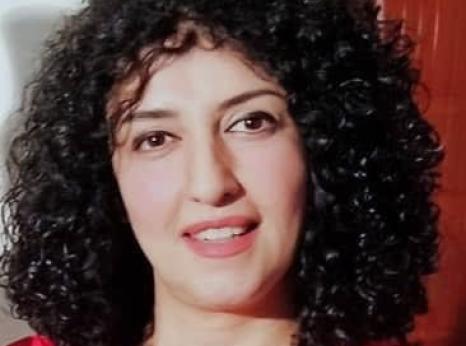Iran: Jailed Nobel Peace Prize Laureate’s Health At Risk

On 6 November 2023, Narges Mohammadi’s family announced on social media that she began a hunger strike that day in protest at the Iranian authorities’ repeated denial or delay of adequate medical care for ailing prisoners, which results in death or severe deterioration in health, and for conditioning women prisoners’ access to adequate healthcare to adhering to compulsory veiling laws. In 2022, Iranian authorities repeatedly denied Narges Mohammadi access to adequate healthcare in prison, including in reprisal for her ongoing human rights work, and placed her life at grave risk. Narges Mohammadi reported that, on 3 February 2022, following what she later learned was a heart attack, the prison doctor denied her adequate healthcare by not carrying out examinations on her heart after she was taken to the prison clinic severely unwell, while prosecution officials barred her transfer to hospital outside of prison for urgent healthcare. It was only after suffering a series of heart attacks on 16 February 2022 that Narges Mohammadi was transferred to hospital where she underwent emergency heart surgery. Against medical advice and before she recuperated, on 19 February 2022, the authorities took her back to prison. On 22 February 2022, she was released from prison on temporary medical leave and recalled to prison on 21 April 2022 to continue serving her sentence, despite medical advice, and has been in prison ever since. In addition to her heart condition, she has a pre-existing lung disease, which is characterized by breathing difficulties, and for which she must use an inhaler and regularly take anticoagulant medications to prevent the formation of blood clots in her lungs.
Narges Mohammadi has faced reprisals by the Iranian authorities for her human right work for over 14 years, including unjust prison terms. Her most recent imprisonment began on 16 November 2021, when she was violently arrested while attending a memorial ceremony in Karaj, Alborz province, for Ebrahim Ketabdar, who was unlawfully killed by security forces during nationwide protests in November 2019. At the time, the authorities told her that she had been arrested to begin serving a prison sentence of two years and six months following a May 2021 conviction, which stemmed from her participation, during an earlier period of imprisonment, in a sit-in with other prisoners in the women’s ward of Evin prison between 21 and 24 December 2019 to protest unlawful killings carried out by security forces during the November 2019 nationwide protests and statements she had made condemning the death penalty. After arrest, she was held in prolonged solitary confinement for 64 days in section 209 of Evin prison, which is under the control of the Ministry of Intelligence, and where agents subjected her to torture and other ill-treatment by keeping bright lights on 24 hours a day; severely limiting her access to fresh air and natural light to only three times a week for 20 minutes each time; and kept her in almost near total isolation without meaningful contact with other prisoners; which all caused her severe distress and suffering, including shortness of breath. On 4 January 2022, Narges Mohammadi was taken before Branch 26 of the Revolutionary Court in Tehran to stand trial in a separate case. This trial was grossly unfair: it lasted just five minutes and she was denied access to a lawyer both before and during the trial. On 15 January 2022, she was informed that the Court had sentenced her on national security related charges to eight years and two months in prison; two years in internal “exile” in a city outside Tehran where she normally lives; a two-year ban on membership in political and social parties, groups or collectives; a two-year ban on engagement in online spaces, media and press; and 74 lashes. In another case opened against her while she was imprisoned, in October 2022, Branch 26 of the Revolutionary Court in Tehran convicted Narges Mohammadi of “spreading propaganda against the system” and sentenced her to an additional one year and three months’ imprisonment, a two-year ban on leaving the country, a two-year ban on membership in political parties, groups or collectives and cleaning rubbish in uninhabited areas for four hours a day, three days a week, for three months. Most recently, in yet another case brought against her, in early August 2023, Branch 29 of the Revolutionary Court in Tehran convicted her of “spreading propaganda against the system” for her public writings from inside prison detailing sexual violence against women protesters detained during the “Woman Life Freedom” uprising and sentenced to a further one-year prison sentence.
Narges Mohammadi was previously released on 8 October 2020 after being unjustly imprisoned for over five years in a case also solely stemming from her human rights work. She reported that from the time of her release until her arbitrary arrest and detention on 16 November 2021, she received death threats from security forces and was arbitrarily arrested on at least five occasions and detained each time for periods reaching up to about 24 hours. On 6 October 2023 Narges Mohammadi was named the recipient of the 2023 Nobel Peace Prize “for her fight against the oppression of women in Iran and her fight to promote human rights and freedom for all”.